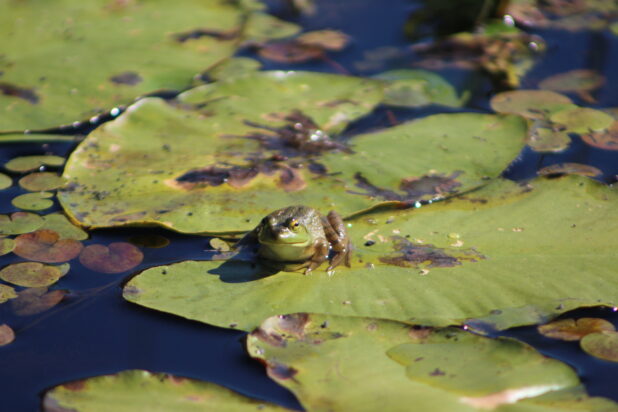Commentary
Preventative medicine
August 13, 2020

Aug. 13, 2020
By Nate Smelle
When I think of what I love most about this part of Ontario, wetlands are way up there on the list. Often considered expendable obstacles to the idea of “progress” held by developers and industrialists, these essential ecosystems are in fact one of the most fundamental building blocks of our evolution.
As hubs of biodiversity, wetlands provide us with an abundance of ecosystem services allowing us as individuals, and as species to thrive. Acting as a filter and a carbon sink, these soggy landscapes remove the pollution we spew into the atmosphere and clean the air we breathe, while at the same time doing their part to cool our heating home.
Without sending us an invoice, and with the help of turtles, insects, fish, birds, and a variety of reptiles, mammals and amphibians, wetlands purify the water we need to survive.
Yet, despite their obvious contribution to sustaining our collective vitality, their existence is far too often deemed an acceptable form of collateral damage during the cost/benefit analysis conducted prior to putting shovels in the ground.
Now that we have come to understand through the COVID-19 pandemic that we need clean air and water to live; and that without good health our potential as individuals and as a species is at best severely limited, I have to wonder whether if there will be a revitalized push to protect these sacred life-giving spaces.
When we are sick or injured we respond to such personal calamities by going to see our family doctor or to the hospital. When we are feeling well, it is wise to do everything that we can to maintain our good health. Certainly now that the pandemic has exposed the gross under-funding of our health care system, and the consequential weaknesses this lack of resources creates, no politician in their right mind would ever again in our lifetime propose cuts to health-care, or a privatized, for-profit system.
Likewise, nor would any politician who cares about the future of the public’s health support any development that threatens the health of an ecosystem that generously provides us with everything we need to live. To disrespect and destroy the earth that gives us life is to disrespect and destroy ourselves. Like preventative medicine, protecting our wetlands protects the public’s health.
As Chief Seatle of the Duwamish-Squamish First Nations once advised the next generation “Teach your children that the ground beneath their feet is the ashes of their grandfathers. So that they respect the land, tell your children that the earth is rich with the lives of our kin. Teach your children what we have taught our children – that the earth is our mother. Whatever befalls the earth, befalls the children of the earth … This we know: all things are connected like the blood that unites one family.”
Without wetlands, and the clean air to fill our lungs, and clean water to drink and wash they produce, it doesn’t matter if we wash our hands, maintain physical distance, wear a mask, or contract COVID-19.


















